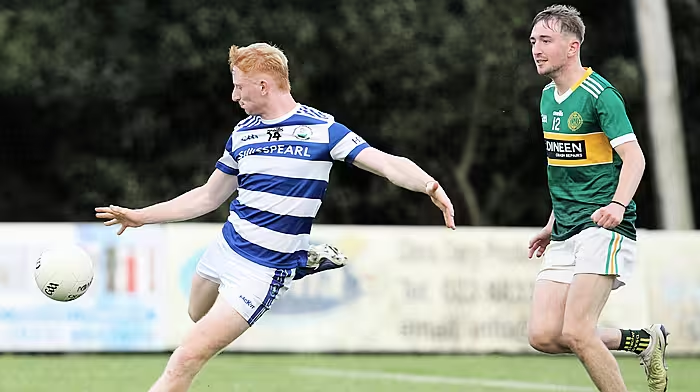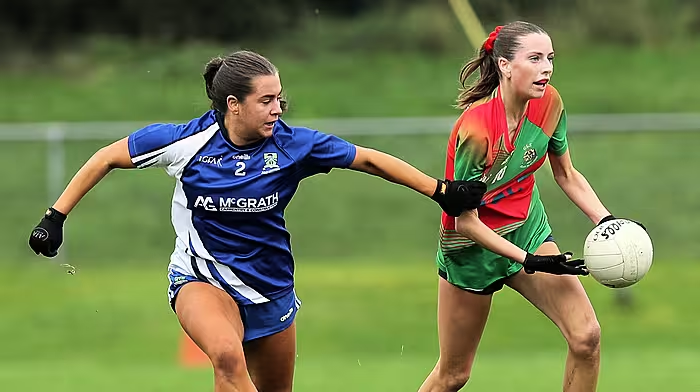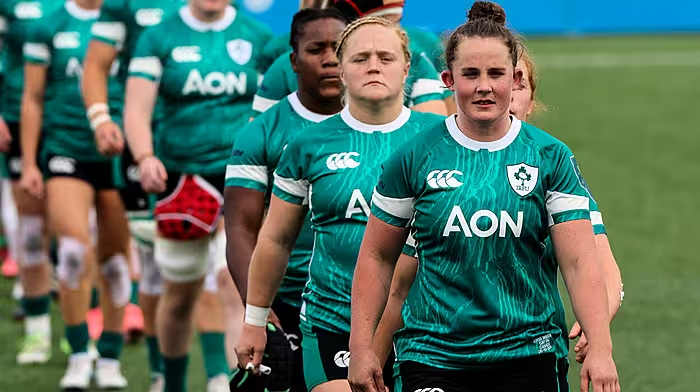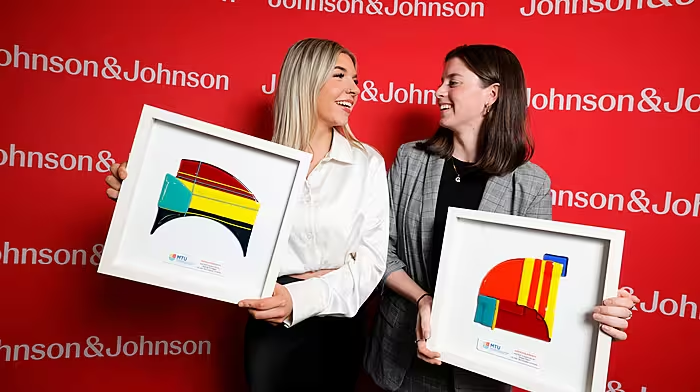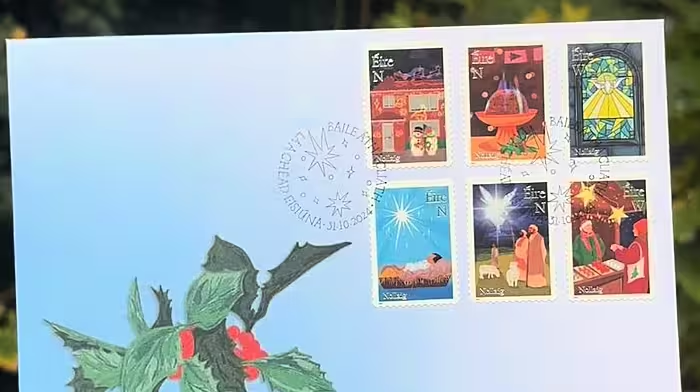
CORK footballers eventually got the job done in SuperValu Páirc Uí Chaoimh, albeit after a largely uninspiring performance.
This was one of the weakest Limerick teams to travel south in the recent past, having only 11 of last year’s panel available for various reasons according to their manager Jimmy Lee.
The biggest disappointment was that Cork played at the level of their opponents for prolonged stretches of this Munster SFC quarter-final. A strong wind and an almost unforgivable profligacy in front of goal were the core factors that saw Limerick retire at half time with a one-point lead, 0-7 to 0-6.
Cork opened the game with Matty Taylor cutting through the Limerick defence for a nice point off his left, and Cork would repeatedly find joy from running at Limerick even into the teeth of the wind. What happened after they cut through is the major concern for Cork and John Cleary right now.
Four times in the first 20 minutes alone, Cork picked the Limerick defence open only to butcher the opportunities when they presented themselves. Brian O’Driscoll fired straight at Josh Ryan, Paul Walsh and Brian Hurley each palmed wide, before the former overcooked a handpass to the latter which forced Hurley wide of goal after which he correctly opted for the point.
Regular readers of this column will know we’ve discussed Cork’s tendency to pass up goal chances a few times already this year. The creation of so many opportunities is a positive, however there is starting to be real concern about the conversion rate. Cork would go on to bag three goals in the second half, yet they would leave another three or so at least behind as well.
A strong spell when Limerick were down to 14 due to a Cathal Downes black card saw Cork move six points ahead ten minutes into the second half. The Cork goal came from Chris Óg Jones after a terrible solo from Cathal Wolfe presented the ball to Paul Walsh. Walsh found Jones in splendid isolation inside the 45 and for once one of Cork’s forwards did what was expected of them in front of goal.
Jones has started to use this trick more often as well, not dropping all the way deep every time an opponent is attacking. It’s something I like a forward doing as well, as 12, 13 or 14 defenders is often enough to protect your goal and having someone high up means the turnovers can yield far greater rewards. It takes a little bit of courage from the player and trust from the management and team-mates to work, but it can be very effective. It’s also a little battle of wits with your direct marker too, almost daring them to leave you isolated knowing they will be punished if possession is coughed up as it was for this opening goal.
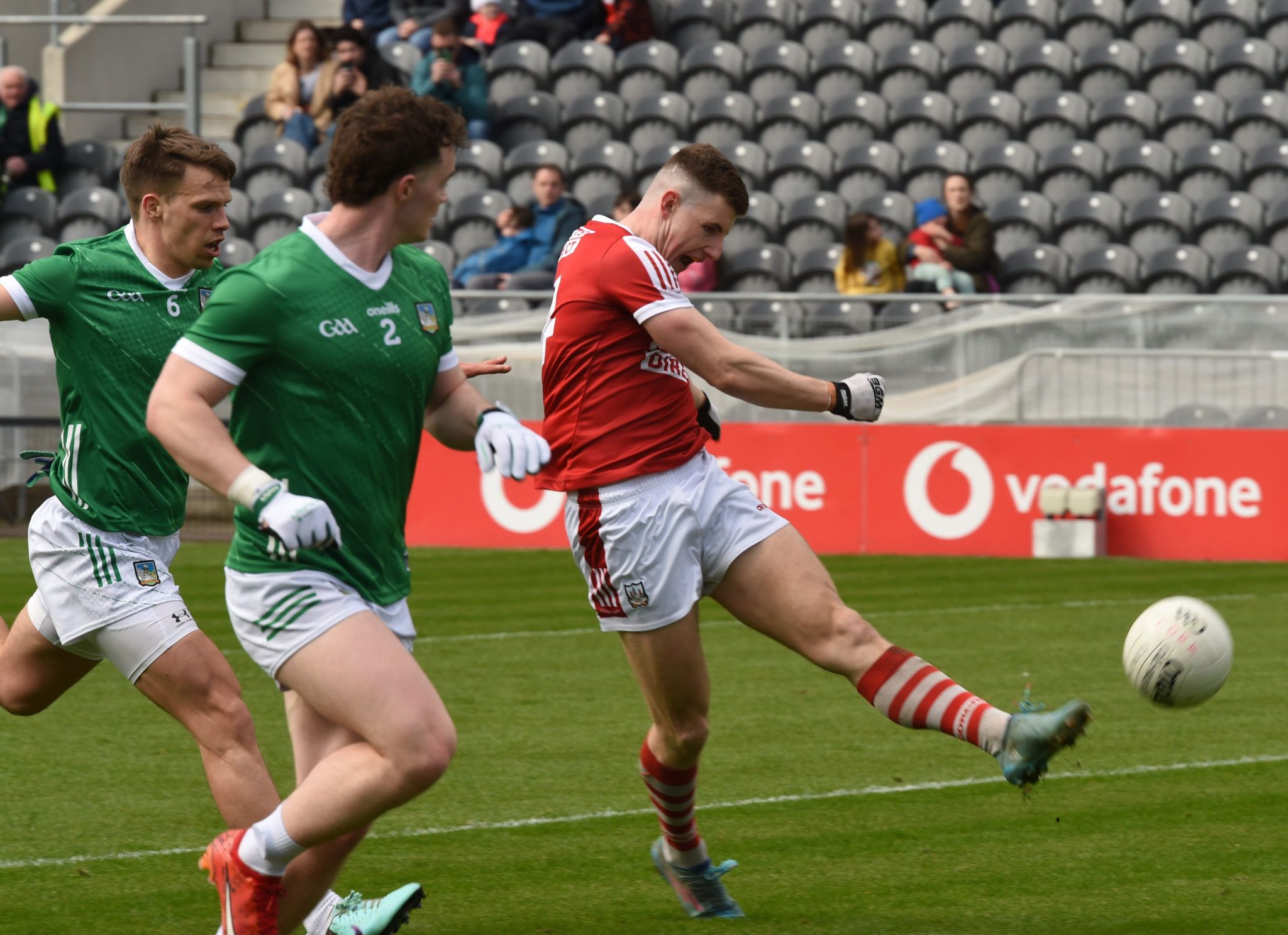 Cork's Conor Corbett has a shot at goal against Limerick.
Cork's Conor Corbett has a shot at goal against Limerick.(Photo: George Hatchell)
The disappointment after the strong start to the second half was Cork’s inability to maintain that standard of performance. Cork would go 15 minutes without a score between the 45th and 60th minutes, and it wasn’t for the want of opportunities. There was one glaring example of Cork’s current travails in front of goal during this period. Around the 50th minute, Cork won the ball back from Limerick at midfield and both Conor Corbett and Brian Hurley found themselves unmarked inside the opponent’s 45 with Limerick defenders and goalkeeper all at sea. Corbett had a simple handpass to make to Hurley to give him a clear run at Ryan in the Limerick goal. Somehow, Corbett miscued the handpass about 20 yards from the intended target and a relieved Ryan gathered to clear. Corbett is a great talent, but such wastefulness must be eradicated, and Killarney on Saturday week would be a great place to start.
Another feature of the first half was Limerick pressing high and hard on the Cork kickout to put pressure on championship debutant Chris Kelly, who started ahead of Micheál Aodh Martin. It was a big call, and he had a few nervy moments in the first half against the Limerick press. A questionable free awarded to Sean Meehan, who was under pressure from two Limerick forwards after a short kick-out, would deny Limerick the prospect of a run at goal. Shortly afterwards, Kelly underhit a kick-out to Paul Walsh on the right wing which was intercepted and resulted in a Limerick point. A free in awarded against the Cork custodian for charging after he gathered a high ball well gave Limerick a point from a free also.
To his credit, Kelly settled after this and did everything he needed to do from then on. Nonetheless, the big selling point that Kelly has over Martin is that he has more variety to his kick-out game. There wasn’t a great deal of this in evidence last Sunday and it’s another big call for John Cleary and Co for Killarney and the pressure that will come from Kerry in this area. Kelly might have done enough with his solid second half to get the jersey again on Saturday week, and that is when we can really judge if Cork have a new No. 1 or not. Kerry will come after the Cork kick-out and it is not all down to whoever is in goal either. The movement to provide options for the keeper from the outfield players needs to improve also.
Ultimately Cork did what they needed to do and two late goals from Ruairi Deane and Ian Maguire put a somewhat flattering gloss on the final score for Cork. Struggling against the perceived lower lights is nothing new for Cork football, but the hope now is that they can elevate the level of performance for the Kerry boys, and it will need to be a vast improvement just to be competitive.
***
A comment for the opening round of the championships and the commentary that has gone with it. So much has changed in the GAA since the turn of the century, some for the better and some less so, the first major change being the move away from direct knockout football with the introduction of the back door. Thus began the prolonged regression of the provincial football championships. There have been several adjustments to the system since to bring us to the somewhat convoluted system we have today, but what is undeniable is that the provincial football championships are an antiquated relic that have almost totally lost their appeal.
Leaving hurling aside for a moment – I think the hurling championship structure is a generally good one – only the Ulster football competition provides any truly consistent intensity and competitive games. There are some exceptions of course, but the interest in Munster and Leinster especially is through the floor in this era of Kerry and Dublin dominance.
The footballers of Waterford and Wicklow had their moment in the sun last weekend, but there is just not enough going for the competitions currently to preserve them as they are. The timing is not quite right either, and a shift of all our competitions by a few weeks would be an adjustment that would be an immediate help. Cork v Kerry on a Saturday evening in Killarney in the middle of April is still an attractive fixture, however perhaps the middle of May might see a few extra punters and slightly increased odds of a fine evening!
Someone soon will have to grasp the nettle and clean the whole system up. The high-profile football review committee under Jim Gavin and new GAA President Jarlath Burns have big jobs on their hands to reinvigorate the big ball game. It will be interesting to see what suggestions are made.





